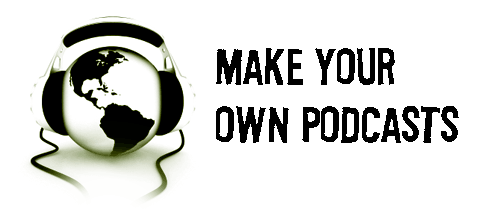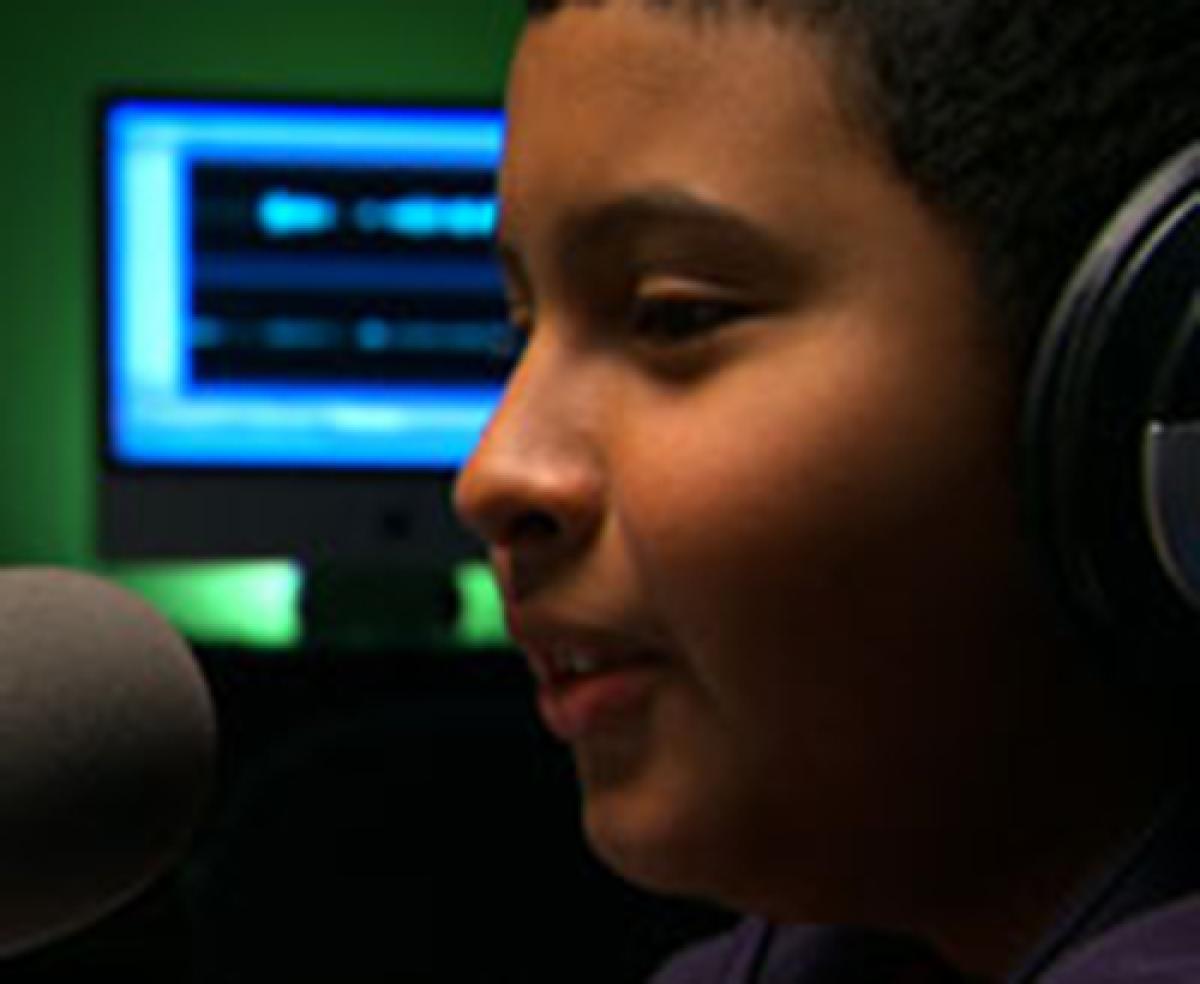
Podcast Tools and Equipment - our two cents worth of advice for 2024
Join the revolution. You can now produce podcasts for classroom, school, and beyond. Very little equipment required and costs are low. The benefits can be high. Clearly there are many different learners and the types of media that are effective for reaching them continues to evolve. Audio media is one more tool that can reach students.
This page lists the technical side of podcasting. We also have a series of podcasts that deal with the tips and techniques for interviewing and editing broadcast media. Since technology keeps changing almost daily, we will work to keep the latest equipment, and software information on this page. These are just recommendations, but by no means all the options you will find as you begin to research the area of sound recording software and equipment.

Computer
Just about any computer since 2002 should be able to be used to record and edit podcasts. So, 22 years later you can imagine that you can now do podcasts with any computer and even your smartphone. The key features you will need to look for are:
- Hard drive storage space (at least 1GB of free storage beyond the system requirements)
- Sound input in this case a dedicated microphone, or even some mobile devices.
- Headphone jack (for editing podcasts), it helps you hear all the little imperfections so you can do a better job editing.
Microphones
Microphones models are often changing and new ones are frequently introduced. With that thought we are going to provide some guidance that is a bit more ev ergreen. Keep in mind that while microphones are important, where you make the recording it equally if not more important that the type of microphone you use. Finding a quiet space with good sound quality can make even a smartphone recording sound good and even a recording with an expensive microphone can sound terrible if the room acoustics are bad. Empty rooms with hard surfaces are usually bad. The sounds bounce off the hard surfaces and create an echo effect. If you are recording at home, you might try your bedroom or clothes closet to get better sound. The soft surfaces in those spaces generally improve the quality of a recording.
ergreen. Keep in mind that while microphones are important, where you make the recording it equally if not more important that the type of microphone you use. Finding a quiet space with good sound quality can make even a smartphone recording sound good and even a recording with an expensive microphone can sound terrible if the room acoustics are bad. Empty rooms with hard surfaces are usually bad. The sounds bounce off the hard surfaces and create an echo effect. If you are recording at home, you might try your bedroom or clothes closet to get better sound. The soft surfaces in those spaces generally improve the quality of a recording.
- Entry level
If you have a mobile device like a phone with a recording option, you have an entry level portable microphone. The key is to record in a quiet space that does not have hard surfaces like large windows and blank walls. Also, see if your phone app can record in non-compressed mode like (.wav) format. This will help when you start to edit your recordings. - Medium quality
If you want to get a dedicated microphone you can find some pretty good quality microphones from $50 - $100. A search for "budget microphones" will provide you with many options. Microphones at this price point change frequently, so you should also look for reviews of any microphone you might be interested in purchasing. - High
If you are looking for microphones in this price range, you are likely someone with enough podcast experience to know what you like. We do recommend that you look for microphones that work well with mixing boards since you are likely going to want to refine your recording sound and a mixing board can make a big difference.
Editing Software
Software should never be an issue for podcast production. There are free software options that work quite well for someone beginning to produce audio files. In some cases the fee-based software may have more file format conversions and output options. They also include sound effects and short music clips you can use to liven up your broadcast.
-

Free software
Audacity (PC/Windows - Mac - Linux)
https://sourceforge.net/projects/audacity - Software with a cost
Adobe Audition (educational discount available - PC/Windows)
https://www.adobe.com/products/audition.html
Garage Band (Mac)
https://www.apple.com/mac/garageband/
Sound Forge
https://www.magix.com/us/music/sound-forge/
Headphones
Just as with microphones, a good quality set of headphones will make editing your podcasts much easier and also improve the final quality of the podcast. You will see that you do not have to spend a lot of money even for the higher quality headphones. The key is to get studio monitor type headphones. These are the over the ear headphones and not ear buds.
-

Inexpensive (under $20)
Sony MDR-V150
JVC HA-G101 - Medium ($20 - $100)
Sennheiser HD201
Sennheiser HD-280 - High-end (over $100)
Bose QuietComfort 2 Acoustic Noise Cancelling
Publishing your podcasts
Now that you have a great podcast ready, what next? You need to get it out to the world. Just like the quickly changing podcast hardware, support for hosting a podcast continues to evolve. Most services will have a monthly fee. There are a few that have entry level plans, but those seem to keep changing. Remember that nothing is really free. If you are not paying with money, you are likely trading for ads, or worse, giving up some of your personal information for sale. In the end, do your research.
What podcast service does Ask A Biologist use?
For many years we hosted our podcast on our server. In 2022 we made the switch to a podcast hosting service because it provided many features we felt were valuable for our needs. We selected Buzzsprout - and no, we are not sponsored by them and do not get a discount on our monthly fee.
Read more about: Make Your Own Podcasts
Bibliographic details:
- Article: Make Your Own Podcasts
- Author(s): CJ Kazilek
- Publisher: Arizona State University School of Life Sciences Ask A Biologist
- Site name: ASU - Ask A Biologist
- Date published:
- Date accessed:
- Link: https://askabiologist.asu.edu/activities/make-podcasts
APA Style
CJ Kazilek. (). Make Your Own Podcasts. ASU - Ask A Biologist. Retrieved from https://askabiologist.asu.edu/activities/make-podcasts
Chicago Manual of Style
CJ Kazilek. "Make Your Own Podcasts". ASU - Ask A Biologist. . https://askabiologist.asu.edu/activities/make-podcasts
CJ Kazilek. "Make Your Own Podcasts". ASU - Ask A Biologist. . ASU - Ask A Biologist, Web. https://askabiologist.asu.edu/activities/make-podcasts
MLA 2017 Style

Calling all students in the Phoenix area, the Ask A Biologist co-host contest is here...
Be Part of
Ask A Biologist
By volunteering, or simply sending us feedback on the site. Scientists, teachers, writers, illustrators, and translators are all important to the program. If you are interested in helping with the website we have a Volunteers page to get the process started.
